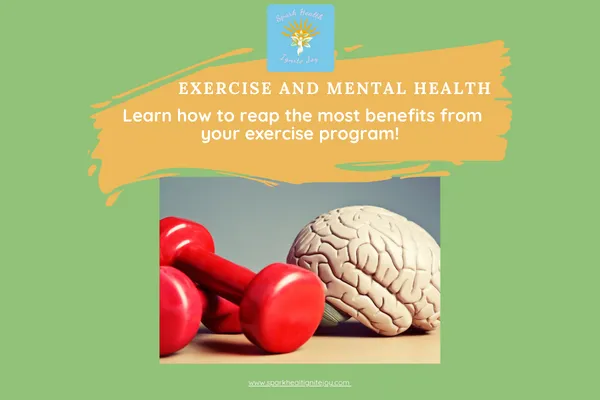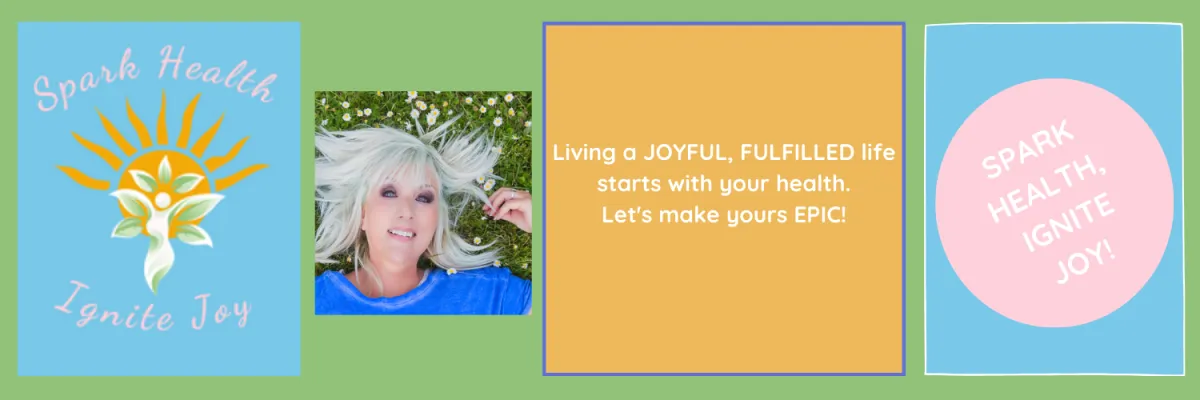Welcome to my Blog!

About the Blogger
Hi, I'm Wendy!
I'm an EXPERT in fun, joy and living life with a "you gotta put in the hard work for what you want (but still have fun doing it!) and the rewards are SO worth it" mantra for success and getting the most out of life!
I'm a CERTIFIED EXPERT in fitness, nutrition, weight loss and coaching from a habits-based, whole foods plant-based perspective that is all about GOOD HEALTH for life.
My passion is helping people truly find and live their optimal lives through making the connections between optimal health and a joyful, fulfilled life.
Through online courses and meal plan coaching, I teach strategies for good habits, good health, making things easier for yourself, and being good to yourself and others.

Exercise and Mental Health: Reaping the Benefits of a Healthy Fitness Program
Have you ever noticed how your mood improves after you exercise? Maybe you didn’t even want to do that workout but you did and felt all the better afterwards? Turns out there is solid research to back up the benefits exercise on our mental health!
It is estimated that 1 in 5 adults have a mental illness. This can include a range from almost no impairment through mild to moderate impairment to more serious levels of mental illness that causes strong functional impairment and very noticeably interferers with one or more major life activities.
Exercise is well known to be able to improve our physical health. But many of us aren’t aware of the benefits of exercise on our mental health too!
Numerous studies have shown that people who are active are almost 45% LESS likely to have symptoms of depression that people who are inactive. But more recent studies have been looking more specific things around exercise to really see studied connections between things like the following:
how do frequency, duration and intensity of exercise relate to mental health?
are all types of exercise equally beneficial and effective for bettering our mental health?
is there a point where exercise can become harmful to our mental health?
Research done by the Center for Disease Control in 2011, 2013 and 2015 looked at data from 1.2 Million adults who answered questions about their mental health, including whether they had ever been told by a health professional that they have any kind of depressive disorder, and questions about their own perception of days where they felt stressed, depressed or had problems with emotions. They also asked questions about any physical activities they had been doing. The design of this study, the questions asked and complex statistical measures broke new ground in knowing more about the links between mental health and exercise.
Results of this extensive research found interesting results on how exercise can play a part in managing mental health difficulties.
Here are some of results of this study:
Have you ever noticed how your mood improves after you exercise? Maybe you didn’t even want to do that workout but you did and felt all the better afterwards? Turns out there is solid research to back up the benefits exercise on our mental health!
It is estimated that 1 in 5 adults have a mental illness. This can include a range from almost no impairment through mild to moderate impairment to more serious levels of mental illness that causes strong functional impairment and very noticeably interferers with one or more major life activities.
Exercise is well known to be able to improve our physical health. But many of us aren’t aware of the benefits of exercise on our mental health too!
Numerous studies have shown that people who are active are almost 45% LESS likely to have symptoms of depression that people who are inactive. But more recent studies have been looking more specific things around exercise to really see studied connections between things like the following:
how do frequency, duration and intensity of exercise relate to mental health?
are all types of exercise equally beneficial and effective for bettering our mental health?
is there a point where exercise can become harmful to our mental health?
Research done by the Center for Disease Control in 2011, 2013 and 2015 looked at data from 1.2 Million adults who answered questions about their mental health, including whether they had ever been told by a health professional that they have any kind of depressive disorder, and questions about their own perception of days where they felt stressed, depressed or had problems with emotions. They also asked questions about any physical activities they had been doing. The design of this study, the questions asked and complex statistical measures broke new ground in knowing more about the links between mental health and exercise.
Results of this extensive research found interesting results on how exercise can play a part in managing mental health difficulties.
Here are some of results of this study:
> Of the 1.2 million people in the study, those who exercised regularly reported 43.2% fewer self-reported mental health burdens per month than those who didn’t exercise.
> All types of exercise were associated with mental health improvements, including cycling, playing sports, gym workouts, aerobic workouts such as jogging and walking, yoga and tai chi.
> Exercise sessions between 30-60 minutes were associated with the best mental health outcomes with 45 minutes producing the best effect no matter which exercise type. Exercise sessions lasting longer than 90 minutes were less effective and actually exercising for longer than 3 hours were associated with greater mental health burdens for a person than not exercising at all. So over-doing it is not helpful. Try to hit that sweet spot of between 30-60 minutes per session.
> People who exercised 3-5 times per week had fewer mental health issues than people who exercised less than 3 or more than 5 times per week. So the sweet spot is 3-5 for the most benefits! More is not necessarily better!
> People who exercised vigorously had better mental health outcomes than people who exercised lightly or moderately. This makes sense as there is a lot of other research that shows that vigorous exercise raises endorphins which are known to improve mood.
> Exercising while playing recreational sports was shown to have particularly strong benefits. This is in agreement with other studies that have shown the benefits of social activity helping to lower depression and increase our resilience to life stress.
While exercise is no substitute for medical professional care if you have mental health issues that negatively impact your life, more and more research is showing that exercise can definitely have benefits in positively impacting mental health issues, improving mood, decreasing depression and more and more doctors are recommending this as part of treatment.
Fitness Spark!: No matter where you are on the mental health spectrum on any given day, the strong mental and well as physical benefits of regular exercise can improve your life and help keep you feeling positive.

Sign up for my newsletter here for tips on how to Spark Health, Ignite Joy!



Facebook
Instagram
X
LinkedIn
Pinterest